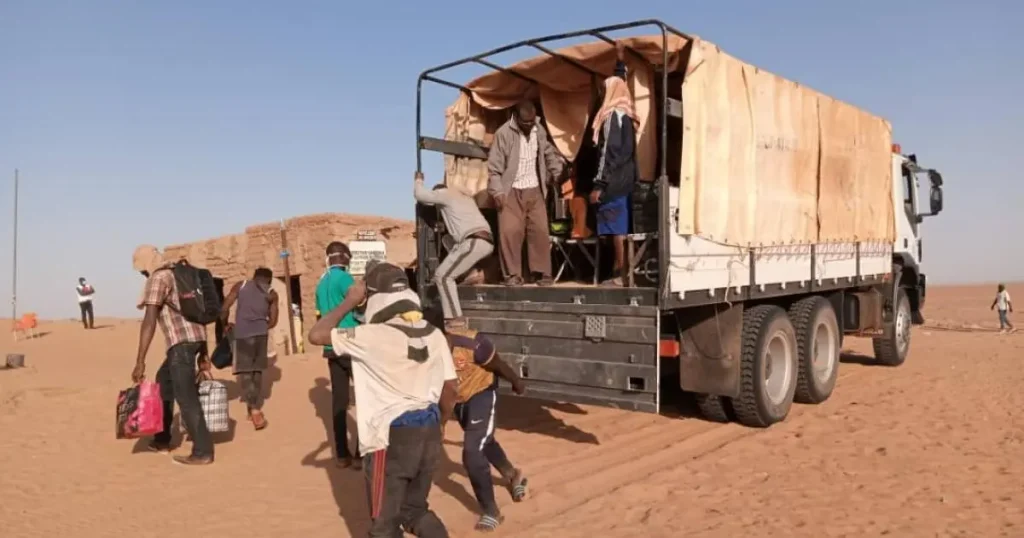Algeria has deported nearly 20,000 migrants from sub-Saharan Africa to neighbouring Niger since the start of the year, often under harsh conditions, according to Alarmphone Sahara, a Niamey-based organisation. The North African country has been sending back irregular migrants, including women and children, since 2014, given its role as a key transit point for those aiming to cross the Mediterranean to Europe.
Alarmphone Sahara, which rescues migrants in the desert between Algeria and Niger, documented the return of 19,798 individuals between January and August. The NGO’s communications officer, Moctar Dan Yaye, reported that the deportations often involve brutal conditions, with some cases resulting in fatalities or abandonment in desert border regions.
Yaye explained that migrants are typically arrested during raids on their homes or workplaces, or along the Tunisian border. They are then transported to Tamanrasset in southern Algeria before being moved in trucks to Niger. Nigerien nationals are taken to Assamaka, a village on the Nigerien side of the border, where local authorities handle their cases.
Migrants from other countries are abandoned at “point zero,” a desert area marking the Algeria-Niger border, and are forced to walk 15 kilometres to Assamaka under extreme heat. Once registered with the Nigerien police in Assamaka, they are provided temporary shelter by the UN and Italy before being moved to other centres in northern Niger.
Yaye noted that migrants have reported abuse, violence, and confiscation of their belongings by Algerian forces. Niger’s military junta, which assumed power last year, summoned the Algerian ambassador to Niamey in April to protest the deportations. Algeria, in response, summoned Niger’s ambassador, dismissing the allegations as “baseless.”
Since Niger repealed a 2015 law criminalising migrant trafficking last November, the NGO has observed that many migrants now move more freely along migration routes without the previous fear of legal repercussions.

